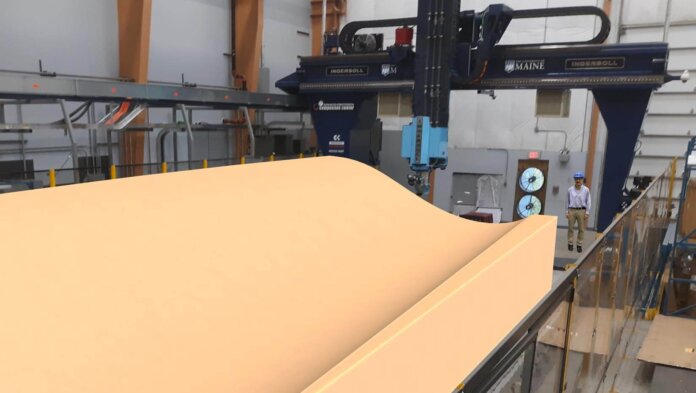The University of Maine Advanced Structures and Composites Center has been awarded $2.8 million from the U.S. Department of Energy Office of Energy Efficiency and Renewable Energy to develop a rapid, low-cost additive manufacturing (3D printing) solution for fabricating large, segmented wind blade molds.
In addition, the UMaine Composites Center will collaborate on a $4 million award to Oak Ridge National Laboratory (ORNL) to apply robotic deposition of continuous reinforcing fibers in wind blades. Currently, innovation in large wind blade technology is a costly and time-intensive process. Molds and tooling for large blades can cost upward of $10 million. The time to market of 16–20 months stifles innovation in this growing market.
“The University of Maine remains committed to additive manufacturing and wind energy technology – this funding will harness researchers’ expertise in both areas,” says Sens. Susan Collins and Angus King. “We are thrilled that the Department of Energy continues to invest in UMaine’s cutting-edge research and prioritizes the advancement of our state’s clean energy economy and the creation of good-paying jobs.”
The molds will incorporate 3D printed heating elements using a new technology developed at ORNL. Control of mold surface temperatures is a critical manufacturing requirement and the new ORNL technology enables robotic deposition of heating elements, reducing mold fabrication time and cost.
The outcome of the proposed research is to transform mold production as a key enabler for more rapid and more cost-effective large wind turbine blade development. TPI Composites and Siemens Gamesa (SGRE) are partnering with the UMaine Composites Center on the project. A successful demonstration will put both SGRE and TPI in a position to transition the additive manufacturing solution into practice.




